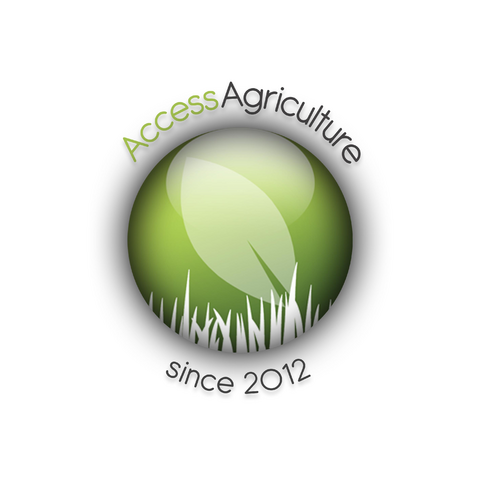
15.9K
Downloads
474
Episodes
Access Agriculture is a non-profit organisation that showcases agricultural training videos in local languages. We strive to promote the transition towards agroecology and organic farming across the global South. To impact on rural livelihoods, please explore Access Agriculture.
Access Agriculture is a non-profit organisation that showcases agricultural training videos in local languages. We strive to promote the transition towards agroecology and organic farming across the global South. To impact on rural livelihoods, please explore Access Agriculture.
Episodes
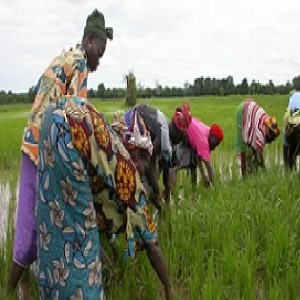
Monday Mar 20, 2023
Effective weed management in rice (Summary)
Monday Mar 20, 2023
Monday Mar 20, 2023
Effective weed control can increase yields by more than 50%. As a farmer it is therefore worthwhile taking a closer look. In this podcast you can learn how to control weeds most effectively.
Download the full audio podcast in different languages at : www.AccessAgriculture.org
Available languages :
Arabic | Ateso | Bangla | Bariba | Burmese | Chichewa / Nyanja | English | Fon | French | Fulfulde (Cameroon) | Ghomala | Hindi | Kannada | Kinyarwanda / Kirundi | Kiswahili | Luganda | Lugbara | Luo (Uganda) | Peulh / Fulfuldé / Pulaar | Runyakitara | Telugu | Tumbuka | Wolof | Yao
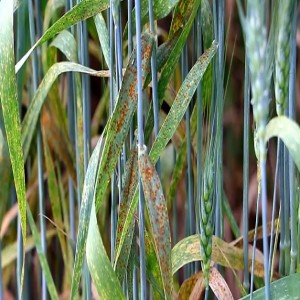
Tuesday Oct 12, 2021
Managing rust diseases in wheat and barley (Summary)
Tuesday Oct 12, 2021
Tuesday Oct 12, 2021
Rust diseases spread through wind and can rapidly develop in cool, wet weather. To know if your crop has rust disease, rub over the infected plant part to see if a yellow, brown or black powder sticks to your fingers. By combining organic methods, you will be able to grow a healthy crop, produce more and make more profit.
Download the full audio podcast in different languages at: www.accessagriculture.org
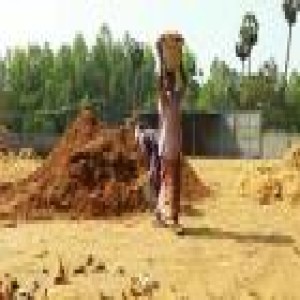
Friday Oct 08, 2021
Coir pith (Summary)
Friday Oct 08, 2021
Friday Oct 08, 2021
Coir pith degrades so slowly that it is often considered useless for agriculture. But well-decomposed coir pith can absorb five times its weight in water. So when applied to your soil, it can hold water much better. To prepare compost out of coir pith you need to break down the lignine. This can be done by good microbes.
Download the full audio podcast in different languages at: www.accessagriculture.org
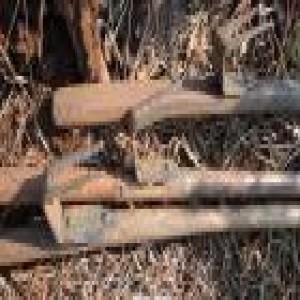
Thursday Oct 07, 2021
Cassava harvest made easier (Summary)
Thursday Oct 07, 2021
Thursday Oct 07, 2021
Ensure your soil is rich in organic matter and grow a legume intercrop to help keep your soil loose. Plant your cuttings horizontally or at a slant so the roots grow closer to the surface. With a simple tool you can uproot your cassava twice as fast.
Download the full audio podcast in different languages at: www.accessagriculture.org
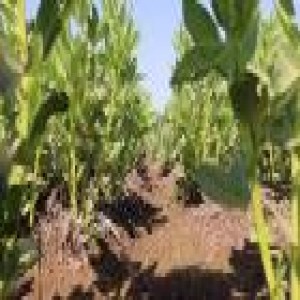
Tuesday Oct 05, 2021
Stronger plants with raised beds (Summary)
Tuesday Oct 05, 2021
Tuesday Oct 05, 2021
Raised beds must be 20 to 30 centimetres high, 80 to 100 centimeters wide and the furrows 30 to 40 centimeters wide. The beds can be 50 to 100 meters long depending on the slope of the field. Because the beds are wide, water is channelled faster through the land, while seeping into the soil and reaching the roots of the crop directly.
Download the full audio podcast in different languages at: www.accessagriculture.org
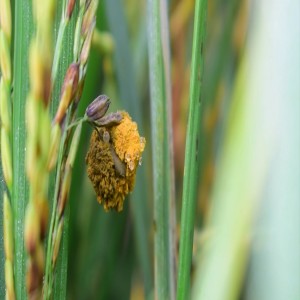
Monday Oct 04, 2021
Managing false smut of rice (Summary)
Monday Oct 04, 2021
Monday Oct 04, 2021
By applying a range of agroecological practices, you can avoid disease infestation in your rice crop.
Download the full audio podcast in different languages at: www.accessagriculture.org
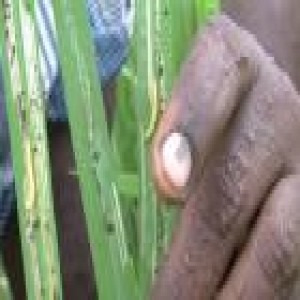
Friday Oct 01, 2021
Managing the rice leaf folder (Summary)
Friday Oct 01, 2021
Friday Oct 01, 2021
By combining different organic methods, you will harvest a lot more rice and make more money.
Download the full audio podcast in different languages at: www.accessagriculture.org
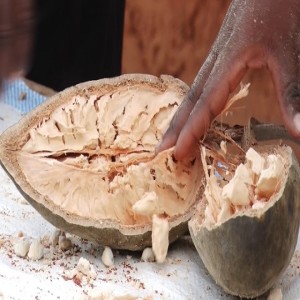
Monday Sep 20, 2021
Enriching porridge with baobab juice (Summary)
Monday Sep 20, 2021
Monday Sep 20, 2021
Compared to other foods, baobab pulp contains very high levels of minerals such as calcium, iron and magnesium as well as vitamin C. Furthermore, it is rich in fibre. It is good for human health and reduces the risk of diseases. Due to these properties, baobab fruits are often called a super food.
Download the full audio podcast in different languages at: www.accessagriculture.org
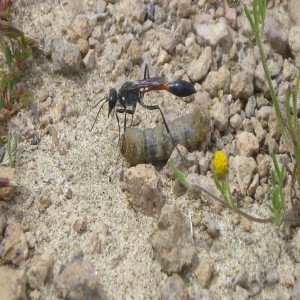
Wednesday Sep 01, 2021
The wasp that protects our crops (Summary)
Wednesday Sep 01, 2021
Wednesday Sep 01, 2021
By keeping live barriers with flowers around your fields, you help to protect the wasps and the other good insects. And it is easier to produce quinoa without insecticides while conserving our fertile soil.
Download the full audio podcast in different languages at: www.accessagriculture.org
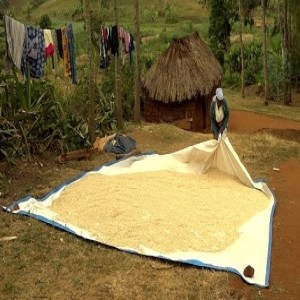
Tuesday Aug 03, 2021
Managing aflatoxins in maize during drying and storage (Summary)
Tuesday Aug 03, 2021
Tuesday Aug 03, 2021
As our health and the health of our animals are at stake, let us learn from experienced farmers in Tanzania how to properly dry and store our maize.
Download the full audio podcast in different languages at: www.accessagriculture.org
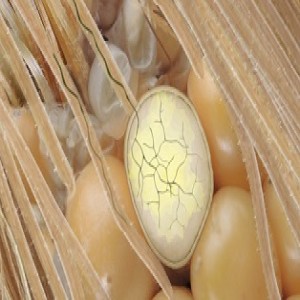
Monday Aug 02, 2021
Managing aflatoxins in maize before and during harvest (Summary)
Monday Aug 02, 2021
Monday Aug 02, 2021
By keeping your soil healthy and by planting early, your plants will be strong and less vulnerable to insects and moulds. Once the maize is dry, harvest within the next two weeks. Keep the healthy ears off the ground, otherwise moulds will get on your maize and damage it during storage. Burn all the bad ears. Never feed them to your animals.
Download the full audio podcast in different languages at: www.accessagriculture.org
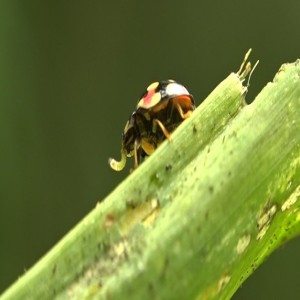
Wednesday Jul 28, 2021
Killing fall armyworms naturally (Summary)
Wednesday Jul 28, 2021
Wednesday Jul 28, 2021
By making best use of farmers’ friends and local plants on the farm, nature will help you control the fall armyworm and reward you with a good and healthy crop.
Download the full audio podcast in different languages at: www.accessagriculture.org
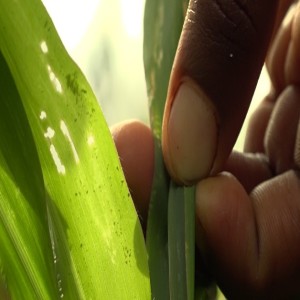
Tuesday Jul 27, 2021
Scouting for fall armyworms (Summary)
Tuesday Jul 27, 2021
Tuesday Jul 27, 2021
Spraying pesticides is expensive and usually cannot control this pest. Visit your field twice a week for the first 6 weeks and kill any egg masses and young armyworms by hand. It is important to do scouting because without it, you will not have a harvest at the end of the day.
Download the full audio podcast in different languages at: www.accessagriculture.org
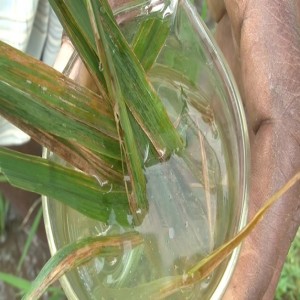
Monday Jun 21, 2021
Managing bacterial leaf blight in rice (Summary)
Monday Jun 21, 2021
Monday Jun 21, 2021
Farmers in India tell how the disease first appears in the leaf tip. Finally, the plant dries up. Non-chemical methods can be used to control this disease.
Download the full audio podcast in different languages at: www.accessagriculture.org
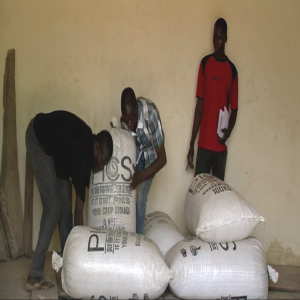
Friday Jun 18, 2021
Storing and managing maize in a warehouse (Summary)
Friday Jun 18, 2021
Friday Jun 18, 2021
Storing and managing stock in a warehouse involves three important steps. We should first prepare the warehouse, then store your products on pallets and third, follow and manage the stock in the warehouse.
Download the full audio podcast in different languages at: www.accessagriculture.org
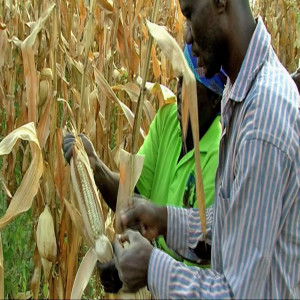
Friday Jun 18, 2021
Harvesting maize in a good way (Summary)
Friday Jun 18, 2021
Friday Jun 18, 2021
Your maize is mature when the leaves and the husks start to dry and turn yellow. Start harvesting improved varieties first and end with local varieties which are more resistant to pest attacks. Dehusk your maize in the field to avoid bringing pests to your home. Properly sort your maize in the field, burn the cobs that have been attacked and store the healthy ones.
Download the full audio podcast in different languages at: www.accessagriculture.org
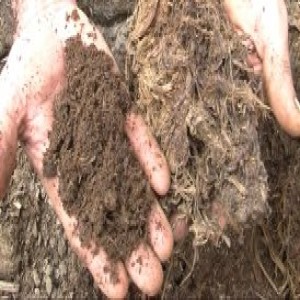
Wednesday May 12, 2021
Compost from rice straw (Summary)
Wednesday May 12, 2021
Wednesday May 12, 2021
Small scale farmers can struggle to keep their soil healthy, and often resort to buying fertilisers to improve their yield, but with a bit of extra work to make compost, yield can be increased naturally and the soil improved year by year. To turn your rice straw into compost, requires a series of steps that control and accelerate the decomposition by microorganisms. With the right conditions, your compost will be ready in 4 months.
Download the full audio podcast in different languages at: www.accessagriculture.org
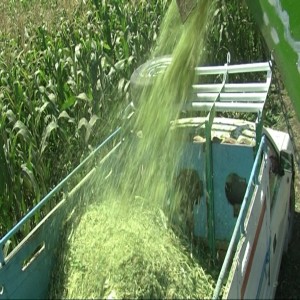
Tuesday May 11, 2021
Silage from maize (Summary)
Tuesday May 11, 2021
Tuesday May 11, 2021
Without any air, finely chopped green maize ferments without rotting. This is because micro-organisms digest the sugars in the fodder and produce lactic acid, which acts as a natural preservative. The key to making silage is to create the right conditions for a good fermentation.
Download the full audio podcast in different languages at: www.accessagriculture.org
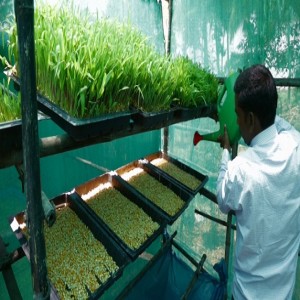
Friday Apr 09, 2021
Hydroponic fodder (Summary)
Friday Apr 09, 2021
Friday Apr 09, 2021
Saving water, minimum land use, less labour, faster growth, giving a high yield of highly nourishing fodder that will improve your livestock. These are the key benefits in hydroponic fodder production.
Download the full audio podcast in different languages at: www.accessagriculture.org
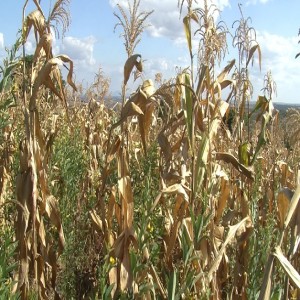
Thursday Mar 25, 2021
Intercropping maize with pigeon peas (Summary)
Thursday Mar 25, 2021
Thursday Mar 25, 2021
Legumes like pigeon peas take nitrogen from the air and deposit it into the soil. When pigeon peas are intercropped the root nodules release valuable nitrogen to the other crop.
Any roots, leaves or stems of the pigeon pea plant that stay in the field also help to improve the soil.
Download the full audio podcast in different languages at: www.accessagriculture.org
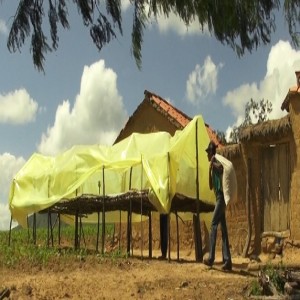
Tuesday Feb 09, 2021
Managing aflatoxins in groundnuts during drying and storage (Summary)
Tuesday Feb 09, 2021
Tuesday Feb 09, 2021
Certain moulds grow on groundnut, maize and other foods. These moulds produce a poison called aflatoxin. To have healthy groundnuts it is important to care for the groundnut during its whole growth, but especially during drying and storage.
Download the full audio podcast in different languages at: www.accessagriculture.org
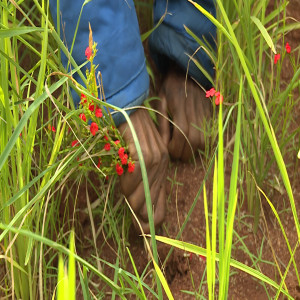
Wednesday Dec 09, 2020
Striga management in rice (Summary)
Wednesday Dec 09, 2020
Wednesday Dec 09, 2020
Farmers in Madagascar show how following four key principles can give you a good rice harvest despite the presence of striga.
Download the full audio podcast in different languages at: www.accessagriculture.org
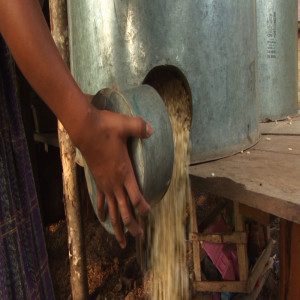
Friday Dec 04, 2020
Let's store our maize well (Summary)
Friday Dec 04, 2020
Friday Dec 04, 2020
Maize grains have to be very dry and clean before you store them. The grains will stay free of pests and diseases for a long time in a metal granary, if you store them correctly.
Download the full audio podcast in different languages at: www.accessagriculture.org
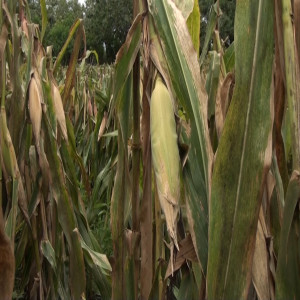
Thursday Dec 03, 2020
Bending over the maize (Summary)
Thursday Dec 03, 2020
Thursday Dec 03, 2020
A traditional Central American practice is to bend over the maize stalk to help dry the maize and to protect it from disease and pest damage. If you do this at just the right time, you will harvest more. Maize grains keep growing until a black spot appears at the base of the grain. At that time, the plant has lost all of its green color, this is when you bend the maize stalk, to allow the grains to keep drying.
Download the full audio podcast in different languages at: www.accessagriculture.org
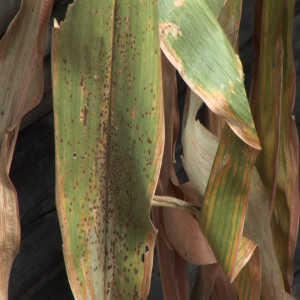
Wednesday Nov 18, 2020
Controlling maize tar spot (Summary)
Wednesday Nov 18, 2020
Wednesday Nov 18, 2020
Maize tar spot is a serious pest of maize. To help prevent it, it is important to burn the crop residues from the previous year, or plant your maize in land that did not have maize the year before. Some maize varieties are resistant to this disease.
Download the full audio podcast in different languages at: www.accessagriculture.org
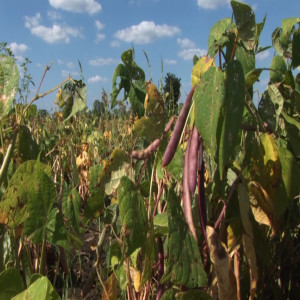
Wednesday Oct 28, 2020
Beans as a relay crop (Summary)
Wednesday Oct 28, 2020
Wednesday Oct 28, 2020
Relay cropping beans between rows of maize helps to fertilize the maize, they can be planted before the maize is harvested. Plant them two to a hill and 25 centimetres apart. After you harvest the beans you can store them in a metal granary.
Download the full audio podcast in different languages at: www.accessagriculture.org
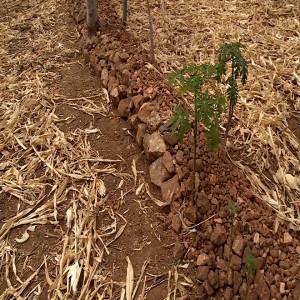
Thursday Oct 22, 2020
Stone lines (Summary)
Thursday Oct 22, 2020
Thursday Oct 22, 2020
Stone lines induce a natural process of terracing as they trap sediments. They are also built to rehabilitate eroded lands. Farmers in Kenya show how they construct stone lines.
Download the full audio podcast in different languages at: www.accessagriculture.org
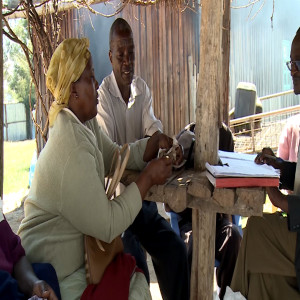
Monday Oct 19, 2020
Self help group (Summary)
Monday Oct 19, 2020
Monday Oct 19, 2020
As individual farmers lack resources to invest in, or learn about, Conservation Agriculture. This audio podcast features a group in Kenya that has come together to share knowledge and equipment and to assist each other.
Download the full audio podcast in different languages at: www.accessagriculture.org
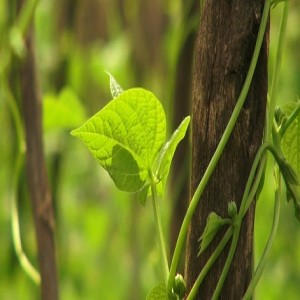
Friday Oct 09, 2020
Staking climbing beans (Summary)
Friday Oct 09, 2020
Friday Oct 09, 2020
Wooden stakes are the strongest support for climbing beans and can be used for many seasons, but wood is in high demand for construction and fuel wood. Farmers in southwest Uganda tell us different ways of staking beans, with or without wood.
Download the full audio podcast in different languages at: www.accessagriculture.org
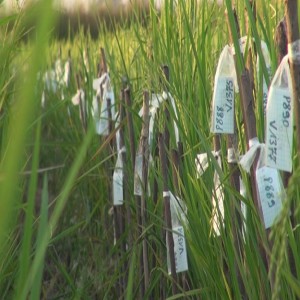
Monday Sep 14, 2020
Selecting new rice varieties (Summary)
Monday Sep 14, 2020
Monday Sep 14, 2020
Participatory varietal selection or PVS is a method that allows different stakeholders to get involved in identifying constraints and selecting new varieties out of the hundreds developed by rice breeders. During three years multiple stakeholders are involved in mother trials, baby trials and tasting tests.
Download the full audio podcast in different languages at: www.accessagriculture.org
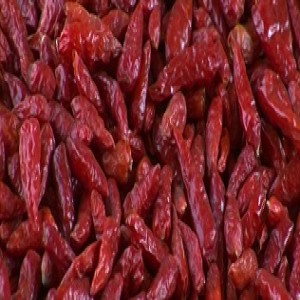
Friday Sep 11, 2020
Drying and storing chillies (Summary)
Friday Sep 11, 2020
Friday Sep 11, 2020
Farmers in southern Malawi have come up with their own clever ways to harvest, dry, grade and store their chillies. To remove the pain in their hands after harvesting the chillies, they use various techniques. The biggest enemy of stored chillies is moisture, as this may result in your chillies getting mouldy and developing a poisonous product, called aflatoxin. Therefore avoid keeping your chillies in a polythene sack as moisture can build up in the sack.
Download the full audio podcast in different languages at: www.accessagriculture.org
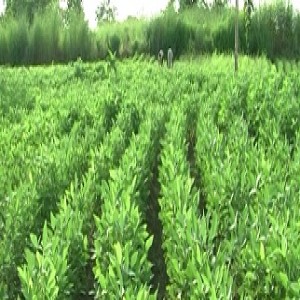
Thursday Sep 10, 2020
Soya sowing density (Summary)
Thursday Sep 10, 2020
Thursday Sep 10, 2020
To achieve the best density of soya bean plants in our field, we must take four precautions: 1. Use seeds that grow well; 2. Narrow the space between seedling rows and between holes; 3. Do not step on the planting holes of the field; and 4. Control the rodents that eat seeds and seedlings after sowing.
Download the full audio podcast in different languages at: www.accessagriculture.org
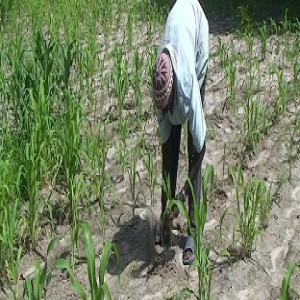
Thursday Sep 10, 2020
Sowing and thinning sorghum (Summary)
Thursday Sep 10, 2020
Thursday Sep 10, 2020
Increasing plant populations by reducing the planting distance is a key step to achieving a uniform crop stand and a high yield. On the other hand, when plants are too close to each other this can hamper good crop development. The plants will be thin and will be susceptible to diseases and pests such as the parasitic weed striga. In this video, we will learn about the best planting density for sorghum. We will understand what factors can affect crop establishment, and then see how thinning and transplanting can help to get a uniform crop stand and high yield.
Download the full audio podcast in different languages at: www.accessagriculture.org
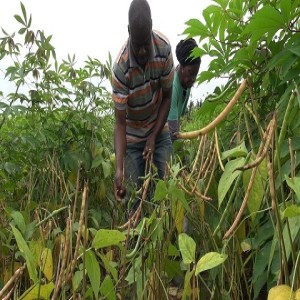
Wednesday Apr 29, 2020
Growing cassava on poor soils (Summary)
Wednesday Apr 29, 2020
Wednesday Apr 29, 2020
Farmers in Cote d’Ivoire show how they improve their cassava production and restore soil fertility. There are five things to do: use improved varieties that are resistant to the cassava mosaic virus; apply organic matter; apply small doses of mineral fertiliser; grow a legume in between our cassava; and plant the cassava in lines, leaving sufficient space between the lines.
Download the full audio podcast in different languages at: : www.AccessAgriculture.org
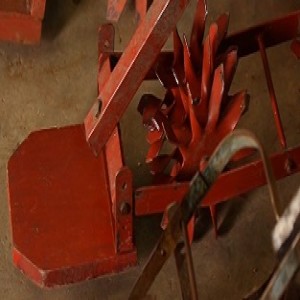
Wednesday Apr 29, 2020
Rotary weeder (Summary)
Wednesday Apr 29, 2020
Wednesday Apr 29, 2020
Effective weed management can increase yields by more than 50%, but usually takes a lot of time. As a farmer it is therefore worthwhile investing in labour-saving weed management tools. In this video you can learn how to control weeds in lowland rice using the rotary weeder.
Download the full audio podcast in different languages at: : www.AccessAgriculture.org
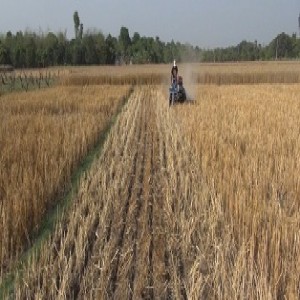
Monday Apr 06, 2020
Strip tillage (Summary)
Monday Apr 06, 2020
Monday Apr 06, 2020
Strip tillage keeps crop stubble and helps to conserve soil moisture by tilling only those parts of the fields where the seed and fertiliser is placed. By using a two-wheel tractor with a specially designed attachment box, the seed and fertiliser are placed in the soil at the same time as tilling.
Download the full audio podcast in different languages at: www.AccessAgriculture.org
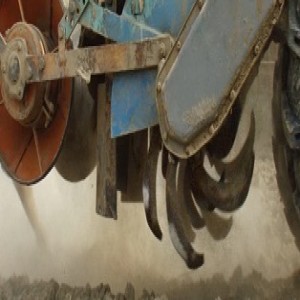
Monday Apr 06, 2020
Bed planting (Summary)
Monday Apr 06, 2020
Monday Apr 06, 2020
With bed planting, rapidly rotating blades first till the soil. The soil is then reshaped into long beds that alternate with furrows. This technique significantly reduces the amount of water needed for irrigating wheat and is increasingly applied throughout South Asia.
Note: This podcast contains some content referring to mineral fertilizer and pesticides
Download the full audio podcast in different languages at: www.AccessAgriculture.org
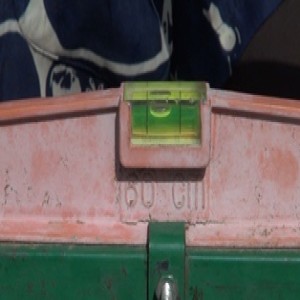
Wednesday Mar 18, 2020
Contour bunds (Summary)
Wednesday Mar 18, 2020
Wednesday Mar 18, 2020
In the semi-arid savannas where rainfall is limited and highly unpredictable, retaining more water in the soil can make the difference between a poor and a good harvest. You can slow down the runoff water by establishing contour bunds. Contour bunds are permanent ridges of earth that follow positions located at the same altitude. For over 20 years, farmers in Burkina Faso and Mali have made contour bunds in their fields on rolling land with less than a 5% slope.
Download the full audio podcast in different languages at: www.AccessAgriculture.org
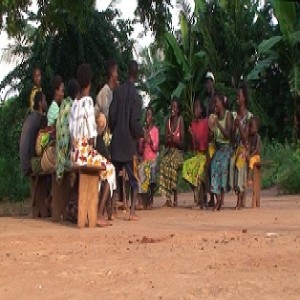
Wednesday Mar 18, 2020
Reviving soils with mucuna (Summary)
Wednesday Mar 18, 2020
Wednesday Mar 18, 2020
In the coastal savanna of West Africa, farmers explain how a mucuna cover crop helped to revive their highly degraded soil, and suppress the noxious weeds Striga and Imperata. They show how to grow it to benefit your maize and cassava, and why discussing land tenure in your community really matters.
Download the full audio podcast in different languages at: www.AccessAgriculture.org
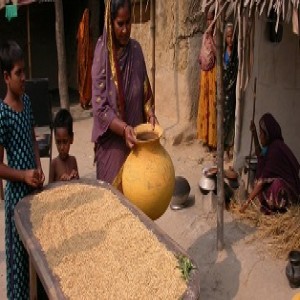
Friday Mar 13, 2020
Well dried seed is good seed (Summary)
Friday Mar 13, 2020
Friday Mar 13, 2020
Farmers face great difficulties with drying their seeds because seed absorbs moisture from the soil. As a result, seed quality deteriorates, and no-one can expect good yields by using poor quality seed. In this video you can see how farmers of Maria village solved this problem. Now they are no longer worried about drying seed, even during the rainy season.
Download the full audio podcast in different languages at: www.AccessAgriculture.org
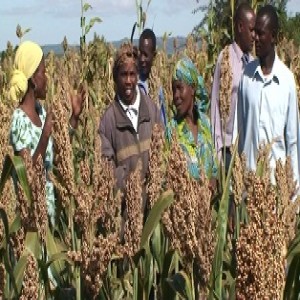
Friday Mar 13, 2020
Succeed with seeds (Summary)
Friday Mar 13, 2020
Friday Mar 13, 2020
During weekly visits, and supported by their extension agent, a farmer field school in Tanzania learns how to test different sorghum varieties for striga resistance and evaluate how each one performs under different practices.
Download the full audio podcast in different languages at: www.AccessAgriculture.org
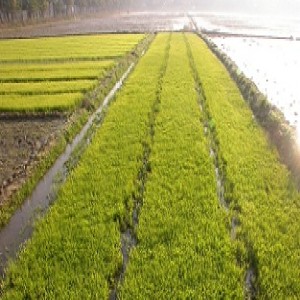
Friday Mar 13, 2020
The rice seedbed (Summary)
Friday Mar 13, 2020
Friday Mar 13, 2020
In this audio podcast, you can learn how to prepare a seedbed, as establishing a good seedbed is needed to obtain strong seedlings and give your rice crop a good start. Let’s look at it step by step.
Download the full audio podcast in different languages at: www.AccessAgriculture.org
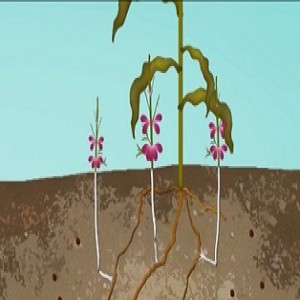
Friday Mar 13, 2020
Striga biology (Summary)
Friday Mar 13, 2020
Friday Mar 13, 2020
One of the major parasites is striga, a weed that sucks the juice and nutrients from cereal crops such as millet, sorghum and maize and causes great yield losses. A single striga plant can produce hundreds of thousands of seeds. The seeds are so tiny that most farmers do not know they are seeds. They really look more like black dust. But don’t be fooled.
Download the full audio podcast in different languages at: www.AccessAgriculture.org
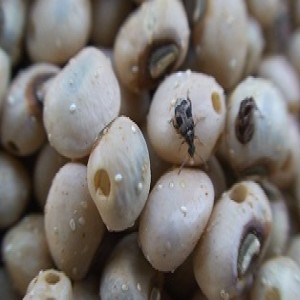
Friday Mar 13, 2020
Storing cowpea seed (Summary)
Friday Mar 13, 2020
Friday Mar 13, 2020
Intercropping or rotating cereal crops with legume crops are two of the strategies of integrated striga and soil fertility management. But keeping quality legume seed has two major challenges. First, the seed easily loses its ability to germinate. And second, we are not the only ones who love legumes. Let’s listen to some farmers from northern Ghana.
Download the full audio podcast in different languages at: www.AccessAgriculture.org
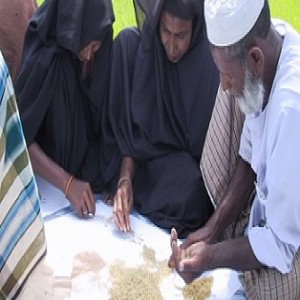
Friday Mar 13, 2020
Spotted Seed - Diseased Seed (Summary)
Friday Mar 13, 2020
Friday Mar 13, 2020
There are many problems with poor seed, and spotted and discoloured seed are some of the major ones. Spotted seeds can't be removed by winnowing or seed flotation. They can only be removed by manual sorting. This video will show you how to clean seed as one of the interventions to produce and use healthy seed.
Download the full audio podcast in different languages at: www.AccessAgriculture.org
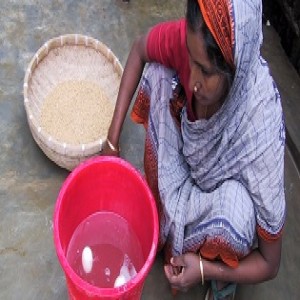
Friday Mar 13, 2020
Seed sorting by flotation (Summary)
Friday Mar 13, 2020
Friday Mar 13, 2020
Why not try the technique of seed flotation before sowing your seed. By using this technique any poor seeds which have been attacked by insects will float to the top, leaving the good seed on the bottom.
Download the full audio podcast in different languages at: www.AccessAgriculture.org
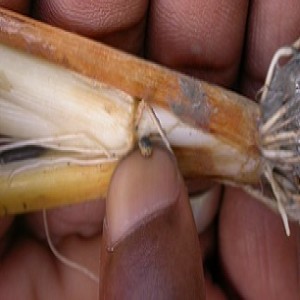
Friday Mar 13, 2020
Rice transplanting (Summary)
Friday Mar 13, 2020
Friday Mar 13, 2020
Yields are much higher when rice is transplanted. Compared to broadcasting, yields are two or three times higher. So why not watch this video and find out how and why.
Download the full audio podcast in different languages at: www.AccessAgriculture.org
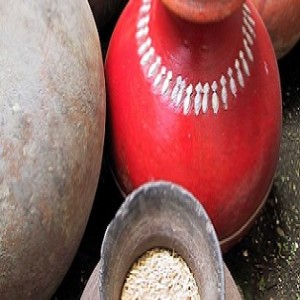
Friday Mar 13, 2020
Rice seed preservation (Summary)
Friday Mar 13, 2020
Friday Mar 13, 2020
Based on hard real-life experience, the women of Maria village have devised some very effective techniques for seed preservation. So why not learn from some of these innovative women.
Download the full audio podcast in different languages at: www.AccessAgriculture.org
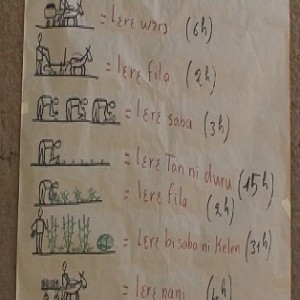
Friday Mar 13, 2020
Let’s talk money (Summary)
Friday Mar 13, 2020
Friday Mar 13, 2020
The economic analysis allows farmers to know how much money they earn or how much they will lose by changing from one technology to another, or from one practice to another. This helps them make a decision for the following year as to which practice they want to try out in their own fields.
Download the full audio podcast in different languages at: www.AccessAgriculture.org
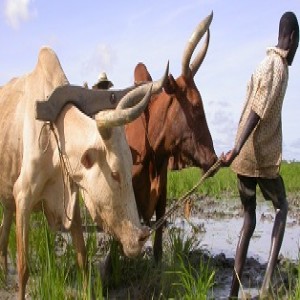
Friday Mar 13, 2020
Land preparation for rice (Summary)
Friday Mar 13, 2020
Friday Mar 13, 2020
How do land preparation and water management affect crop establishment, weed management and rice yields? And why does a field need to be perfectly levelled to make best use of fertilizers? In this audio podcast you can learn the answers to these and other questions.
Download the full audio podcast in different languages at: www.AccessAgriculture.org
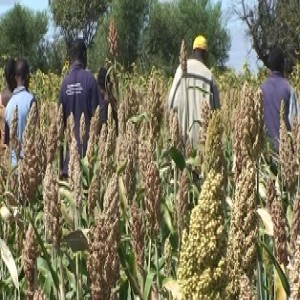
Friday Mar 13, 2020
Joining hands against striga (Summary)
Friday Mar 13, 2020
Friday Mar 13, 2020
It is important to pull striga weeds with your hands before the time it produces seeds and spreads. As it is laborious, better reduce the number of striga plants by applying compost or manure, and by rotating or intercropping with non-cereal crops, such as cowpea. In combination with these practices, hand pulling becomes less laborious. Farmers in Tanzania and Mali join hands to reduce the drudgery of hand pulling. Their community effort also helps them avoid spreading striga seeds to neighbouring fields.
Download the full audio podcast in different languages at: www.AccessAgriculture.org
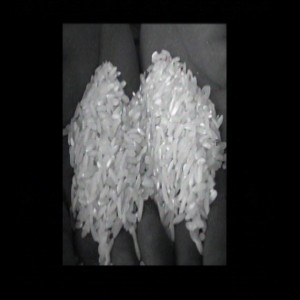
Thursday Mar 12, 2020
Improving Rice Quality (Summary)
Thursday Mar 12, 2020
Thursday Mar 12, 2020
What steps can be taken to make sure that locally grown rice can compete against imports? Improving quality which can lead to increased profits for farmers.
Download the full audio podcast in different languages at: www.AccessAgriculture.org
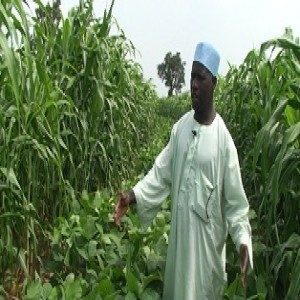
Thursday Mar 12, 2020
Grow row by row (Summary)
Thursday Mar 12, 2020
Thursday Mar 12, 2020
Farmers in northern Nigeria are changing the way they intercrop their sorghum and millet with cowpea. By planting both crops at higher densities and in separate rows, and by applying some organic and mineral fertilizer, they harvest more and reduce damage by the parasitic weed striga. It is one of the strategies of integrated striga and soil fertility management.
Download the full audio podcast in different languages at: www.AccessAgriculture.org
